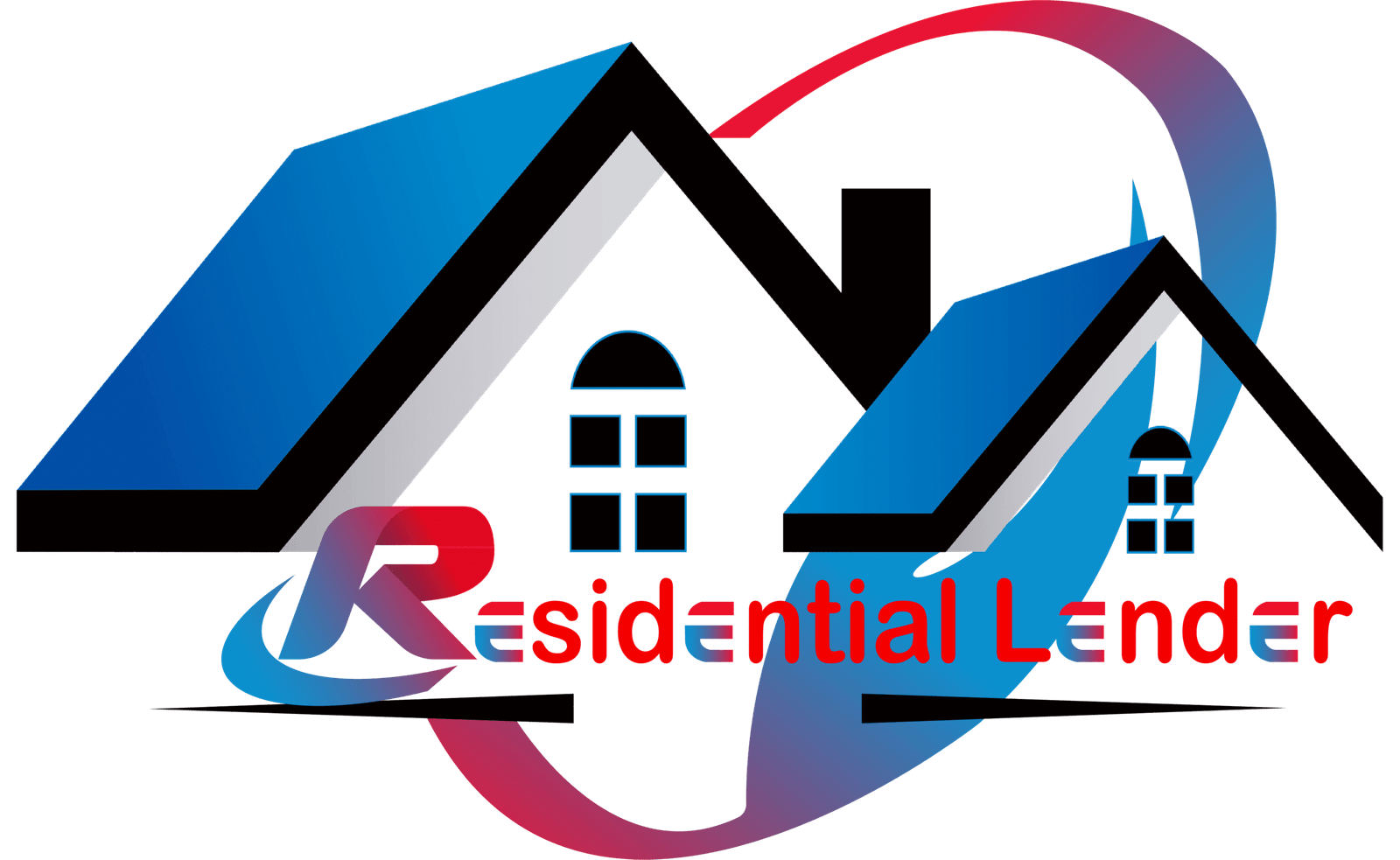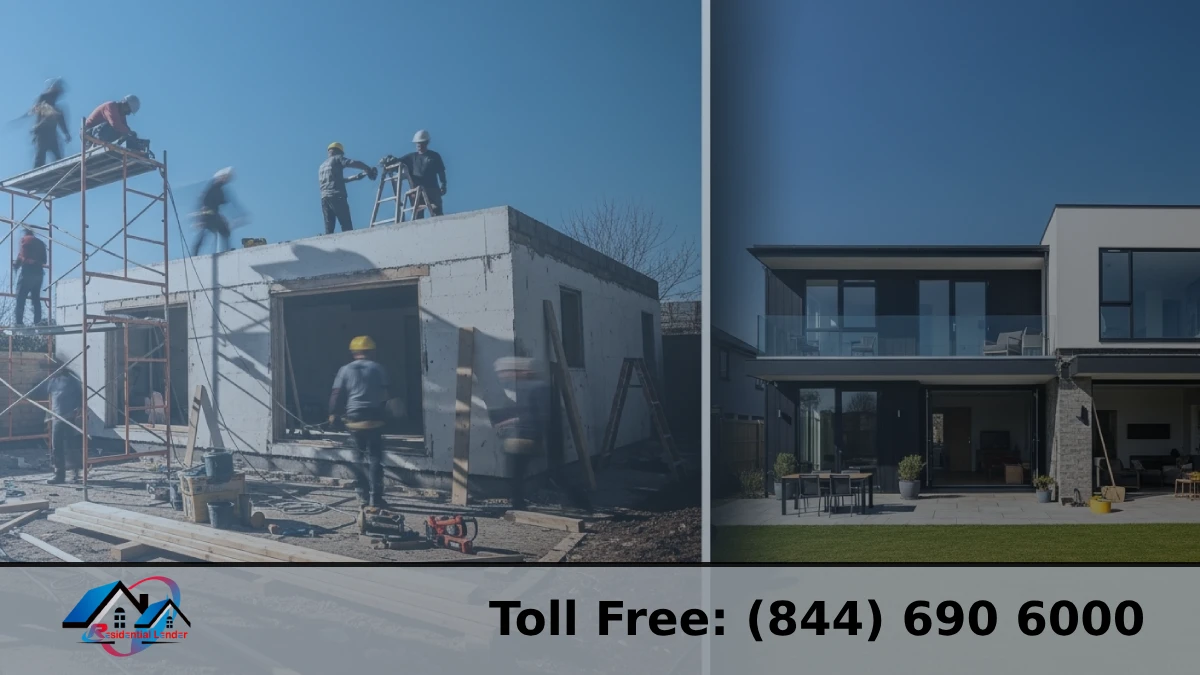Mordor Intelligence says the residential real estate market will be worth $14.96 trillion by 2029. Forbes also noted that rising interest rates have complicated buying things. Because of that, it reached 7.79% in 2023. This has made many wonder if now is the right time to buy, sell, or put money into this market.
To run this fast-paced market, you must know about the residential real estate trends. People can plan for changes in prices and borrowing rates that way. It also helps sellers determine how to list their homes and owners stay current on new trends. It’s like prop-tech and green housing.
This blog post explores the main market trends shaping 2024–2030. It would be best to look at how prices change, how the ages and genders of homebuyers are changing, and how popular new tools are. You should know about these trends if you want to put money into real estate. This blog will help you make intelligent choices in the private real estate market, which is constantly changing. You can also get more information by visiting residencitallender.net.
The Current Residential Real Estate Landscape (May 2024):
From May 2024 to now, the housing market has undergone many changes. The crazy speed of the last few years has slowed down, and bidding wars happen less often.
| Factor | National Trend | Possible Range |
| Inventory Levels | Slowly Increasing | Up 5% – 10% from 2023 lows |
| Interest Rates | Elevated Compared to 2021 | 5.5% – 7.0% (Fixed 30-year mortgage) |
| Home Prices | Generally Higher than Pre-Pandemic Levels | Up 10% – 20% from 2019 |
| Price Growth Rate | Slowing Down | 2% – 5% increase (National Average) |
| Price Corrections | Possible in Some Areas | Flat prices or slight decreases in specific regions |
Inventory: As interest rates rise, some buyers wait to list their homes, which causes the inventory level to increase slowly. For a while, owners had difficulty finding homes because there weren’t many on the market. This is a good change.
Interest Rates: The rise in borrowing rates dramatically affects the market. Compared to the all-time lows in 2021, rates have slowly increased, making homes less affordable and appealing to buyers. Some buyers have had their homes on the market for longer.
Prices: Even though home prices are still higher than before the pandemic, they are going up more slowly than before. In some places, costs may go down. But national trends hide differences between regions. Prices may still increase in markets with strong job growth and few available items. At the same time, places that depend on certain businesses might see prices stay the same or even go down.
National vs. Regional Trends: Remembering that the “national market” is just a broad term for different local situations is essential. High demand could last for a while in places with solid tech businesses or many people who work from home. However, things are different in areas that depend significantly on old industries.
| Region | Inventory | Price Growth | Key Drivers |
| Tech Hubs (e.g., Silicon Valley, Austin) | Stable or Slight Increase | Moderate Increase (3-5%) | Strong job market, continued remote work trend |
| Sun Belt States (e.g., Florida, Arizona) | Moderate Increase | Varied (Stagnant to Moderate Increase) | The influx of retirees, the potential for oversaturation in some areas |
| Industrial Midwest (e.g., Michigan, Ohio) | Dependent on Industry Performance | Flat or Slight Decrease | Performance of manufacturing and industrial sectors |
| Energy Belt (e.g., Texas, North Dakota) | Dependent on Oil Prices | Stagnant or Price Decrease (if oil prices fall) | Fluctuations in the global energy market |
| Northeast Corridor (e.g., New York City, Boston) | Slow Increase | Moderate Increase (2-4%) | It is still attractive to professionals, but affordability concerns |
To make wise choices as a buyer, seller, or investor, you must understand these details and stay current on your market.
Market Predictions: A Look Ahead of Residential Real Estate Trends
Taking the confusion out of residential real estate trends
Have you ever considered the future of buying, selling, or investing in a home? Knowing what to do in private real estate can be challenging, but knowing about critical trends can help you make intelligent choices. Let’s look at the main factors affecting the market from May 2024 to 2030.
| Factor | National Trend | Possible Range | Resource |
| A. Macroeconomic Forces | |||
| Interest Rates | Rising compared to 2021 | 5.5% – 7.0% (Fixed 30-year mortgage) | Freddie Mac https://www.freddiemac.com/pmms |
| Inflation | High | Up to 8% (predicted 2024) | Bureau of Labor Statistics https://www.bls.gov/cpi/ |
| Economic Growth | Moderate | 2-3% GDP growth (projected) | Congressional Budget Office https://www.cbo.gov/topics/economy |
| B. Demographics | |||
| Population Growth | Slowing | 0.5% – 1% annual growth | U.S. Census Bureau https://www.census.gov/popclock/ |
| Aging Millennials | Entering prime homebuying years | Born 1981-1996 | Pew Research Center https://www.pewresearch.org/topic/generations-age/generations/millennials/ |
| Remote Work Revolution | Increasing | Up to 25% of workforce remote by 2025 | Global Workplace Analytics https://globalworkplaceanalytics.com/ |
| C. Proptech | |||
| Virtual Tours | Growing adoption | 3D tours becoming standard | National Association of Realtors (NAR) https://www.nar.realtor/ |
| AI-powered Tools | Increasing use | Home valuation, market analysis | Realtor.com https://www.realtor.com/realestateforsale |
| Data Analytics | Growing importance | Market trends, neighborhood insights | Zillow https://www.zillow.com/ |
| D. Sustainability | |||
| Energy Efficiency | Rising demand | Focus on solar panels, smart thermostats | Energy Star https://www.energystar.gov/ |
| Eco-Friendly Features | Increasing preference | Sustainable building materials, water conservation | National Green Building Standard (NGBHS) https://www.ngbs.com/the-ngbs-green-promise |
| Regulations & Incentives | Potential for stricter regulations & tax breaks for sustainable practices | U.S. Department of Energy https://www.energy.gov/ | |
A. Macroeconomic Forces
The housing market is like a big swing. Comfort, or how easy it is for people to buy a home, is on one side. But there is also demand or the number of people who want to buy. In the next few years, some critical economic forces will tug at different strings:
- Interest Rates: Interest rates are like the cost of borrowing money for a house. When rates are low, monthly payments are also low. This makes homes more affordable and increases demand. But as we saw in 2024, rising interest rates can tip the balance to make things less affordable, which could slow down demand.
- Inflation: Price increases for things and services are called inflation. Costs of things like food go up when inflation is high. People may need more money for a down payment or mortgage, making housing even less affordable.
- Economic Growth: More people can buy homes when the economy is doing well and job growth is high. This is called demand rising. On the other hand, if people are worried about their jobs, a slow economy can lower demand.
B. Demographics: Who’s Shaping the Market?
The number of people looking for homes changes constantly, and it’s essential to know about these changes. Keep an eye on these critical trends:
- Population Growth: People are still moving to the U.S., but it’s taking longer than it used to. This means that people may want to buy fewer new houses than they did in the past. However, there could still be a rise in demand in places where jobs are increasing or where people want to live.
- Aging Millennials: People born between 1981 and 1996 are starting to reach the best time to buy a home. This could make more people want to buy starter homes and live in areas that are good for families.
- Remote Work Revolution: More people working from home can live farther away from standard office hubs. This could make more people want to live in the suburbs and smaller cities where the cost of living is cheaper.
The Future of Homes: These changes in the population might make some properties more famous. What you can expect to see:
- As more millennials join the market, there is more demand for starter homes and townhouses.
- More people want to live in suburbs and smaller cities because they offer more space and cheaper prices. This is especially true where it’s easy to work from home.
- More homes with more than one generation living together as families look for ways to split costs and care for elderly family members.
C. Proptech: The Tech Takeover
Technology is being used in real estate like never before. There is a new way to buy and sell homes called “proptech,” which stands for “property technology.” Take a look at the future below:
- Virtual Tours: With more and more 3D video tours available, you can look at a house from the comfort of your couch. This could make a big difference for buyers out of town or busy.
- AI-powered Tools: AI can look at vast amounts of data to help buyers find the right home and help sellers set the best price for their property.
- Data Analytics: In real estate, data is king. Advanced analytics can tell you a lot about market trends, the people who live in an area, and even how much a home will be worth.
- The Benefits of Tech: Using Proptech to buy and sell things is speeding up, improving, and opening up the process for everyone.
D. Building a Sustainable Future
People are becoming increasingly aware of the environmental impact of their choices, and homes are no exception. Here’s why sustainability matters in real estate:
- Energy Efficiency: Energy-efficient homes are not just good for the environment. They can also save homeowners money on utility bills. Solar panels, smart thermostats, and products that use less energy will likely become more and more popular.
- Eco-Friendly Features: Buyers will be more interested in places with many trees. They can build with eco-friendly products and features that save water.
- Regulations and Incentives: Governments could make rules tighter or offer tax breaks. That encourages builders and homeowners to use more environmentally friendly methods.
- The Greener Path: Making the Future Last: Promoting green housing is good for the environment. As people learn more about the environment, they will want to live in areas with green spaces that are safe and healthy. This is because green spaces cut down on carbon pollution. It’s easy-to-walk-on streets and quick access to public transit. Homes that are energy-efficient and have good ratings or certifications like LEED may sell for more money.
E. Regional Variations: A Word to the Wise
It’s important to remember that these national trends are a broad brushstroke. The real estate market can vary significantly depending on your location. Here’s why:
- Economic Drivers: Areas with growing industries like healthcare or tech may have a steady need for homes. At the same time, areas relying on more traditional industries may have a different picture.
- Geographic Factors: Problems like rising sea levels can affect the values of homes in coastal places. In the same way, areas that are prone to natural disasters may need certain home safety features, which can change what people want.
- Local Regulations: Government policies and zoning laws can influence housing development and affordability. Be aware of local regulations that might impact your specific market.
F. Navigating Your Local Market
To get a more accurate picture of what to expect in your area, consider these steps:
- Find reports on the local market from real estate agencies or area economic development boards you can trust.
- Talk to a real estate agent in your area. An agent who knows the area well can inform you about specific neighborhoods, trends, and prospects.
- Keep up with local news. Local news sites often cover changes in your area’s economy and housing market.
The Bottom Line: How these factors play out will impact affordability, demand, and housing prices. Things might slow down in the short term if interest rates go up. However, prices could rise slowly over the next six years if the economy stays strong and job growth stays steady.
Translating Trends into Actionable Insights
The future of private real estate is full of opportunities, but it can take time to keep up with all the changes. Whether you’re an investor, a first-time renter, or someone who has owned homes, knowing the current trends can help you make intelligent choices. Let’s turn the significant trends we looked at into helpful information for buyers and sellers.
Homebuyer Game Plan: Making Your Move
Navigating the Market:
Based on our research, the market may become more fair over the next few years. If interest rates go up, it might lower original demand, but this could make it easier for people to buy things. Here’s how to plan based on how the market is doing:
- Seller’s Market: If the competition gets tough, you need to be ready to act quickly and effectively. Getting pre-approved for a mortgage shows you have enough money and strengthens your deal. Here at residentiallender.net, our team of experienced loan officers can help you get pre-approved and find a reasonable rate. We have many loan options, such as fixed-rate mortgages that are stable over the long term and adjustable-rate mortgages (ARMs), which may be a good choice when interest rates are rising, based on your situation.
- Buyer’s Market: Use your extra bargaining power to your benefit. You should offer below the selling price and check the property carefully to see if it needs any repairs. Find the right house for your long-term goals and budget.
Securing Financing:
As mortgage rules change, working with a qualified lender who can give you various choices is essential. We at residentiallender.net keep up with changes in mortgage rules and trends. We can guide you through picking the best loan product for your needs, whether that’s a fixed-rate mortgage that gives you peace of mind or an ARM that, based on your finances and risk tolerance, might offer lower initial rates.
Unlocking Your Real Estate Dreams: The Power of the Right Financing
As we’ve seen, the residential real estate market constantly changes because of new buyer wants and trends. Getting the proper funding is essential in this changing market, whether you’re an experienced investor, a first-time homebuyer, or someone in between. A loan product that fits your needs perfectly can mean the difference between getting your dream home and missing out on a great chance.
Residentiallender.net lets you compare different loan products. Rates are just for your knowledge and could change at any time. Actual rates may be different depending on your skills.
| Loan Product | Eligibility Criteria | Interest Rate (Approx. Range – May vary based on market conditions and borrower profile) | Property Type | Down Payment |
| DSCR Loan | – Investable property generating rental income – Minimum credit score requirement (varies by lender) – Strong debt-to-service coverage ratio (DSCR) | 6.00% – 9.00% (Fixed or Variable) | Investment Property | Varies depending on the lender (typically 20% – 30%) |
| Statement Loan | – Self-employed borrowers or those with complex income structures | 6.50% – 9.50% (Fixed or Variable) | Single Family Residence, Condo, Multi-unit (up to 4 units) | Varies depending on the lender (typically 10% – 25%) |
| Private Lender Loan | – Varies depending on the private lender | Can vary widely depending on borrower profile and property | Varies | Varies depending on the private lender |
residentiallender.net – Your Comprehensive Lending Partner
At residentiallender.net, we understand that “one size fits all” doesn’t apply to mortgage solutions. We offer diverse loan products to cater to your unique financial situation and real estate goals. Here’s a glimpse into some of the financing options we provide:
- DSCR Loans: DSCR loans look at a debt-to-service coverage ratio, which isn’t usually used in standard mortgages. This makes them perfect for real estate investors who need rental income to qualify.
- Statement of Income Loans: Statement loan choices can give you more freedom in checking your financial situation if you are self-employed or have a complicated income structure.
- Private Lender Loans: When standard loans might not be an option, we can put you in touch with trustworthy private lenders who can help you get a loan.
These are just a few of the types of loans that residentiallender.net offers. Our skilled loan officers will work closely with you to learn about your needs, how much risk you are willing to take, and your current financial situation. Next, we’ll help you find the best loan choice to make the most of your real estate journey.
Why Choose residentiallender.net?
Here are just a few reasons why working with residentiallender.net is the smart choice:
- Competitive Rates: We leverage our extensive network of lenders to secure the most competitive rates.
- Streamlined Processing: Our efficient loan processing system ensures a smooth and timely experience, getting you into your dream home faster.
- Expert Guidance: Our team of seasoned loan officers is here to answer your questions, address your concerns, and guide you through every step of the mortgage process.
- Commitment to Transparency: We believe in clear communication and will keep you informed throughout the loan application process.
Let’s Make Your Real Estate Dreams a Reality!
Refrain from navigating the complexities of financing that are holding you back from achieving your real estate goals. Contact residentiallender.net today and schedule a free consultation with one of our experienced loan officers. Together, we’ll explore your financing options, answer your questions, and lead you to real estate success!
The Road Ahead: Real Estate Trends Shaping Your Future (2024-2030)
The housing market will have a lot of great opportunities over the next six years. As we’ve seen, several vital trends will likely affect how much homes cost, what kinds of homes people want, and the whole buying and selling process. Just a quick review:
- Macroeconomic forces: There will be a tug-of-war between interest rates, inflation, and economic growth. This could make the market more fair in the years to come.
- Demographic shifts: Millennials getting older and hitting their prime home-buying years, along with the rise of remote work, could increase demand for starter homes, suburbs, and smaller cities.
- Proptech revolution: New technologies like video tours, AI-powered tools, and data analytics will change how we buy and sell homes.
- Sustainability focus: Energy efficiency, eco-friendly features, and communities that can last long will become increasingly important to buyers and residents.
Knowledge is Power: Taking Control of Your Future
You can make intelligent choices about your real estate journey if you stay current on these trends. It’s essential to know the market, whether you’re a first-time buyer trying to figure out the process, a renter trying to get the most out of your investment, or an investor looking for the best deals.
Plan Early, Reap the Rewards:
Take your time getting into the market. You’ll be better able to take advantage of these trends if you learn about them and start planning early. This is how planning can help you:
- Pre-qualification for a mortgage: Knowing ahead of time how much you can borrow makes your deal stronger and gives you peace of mind.
- Identifying the right property: Planning your search around what will happen can help you find a home that will hold its value and meet your needs in the long run.
- Staying ahead of the curve: If you get ready early, you can quickly move through the market, whether a seller’s or a buyer’s market.
Take the First Step: Get a Free Consultation
Are you ready to see what the private real estate market offers? We want to help you reach your real estate goals here at residentiallender.net. Our team has a lot of knowledge and can give you good advice, answer your questions, and walk you through the process.
Set up a free consultation right now, and we’ll discuss your goals. We can help you get pre-approved for a loan, look into your financial options, and get you in touch with the information you need to make intelligent choices. “Demystifying Real Estate Trends: Your Roadmap to Success,” a free guide you can download, is also complete with helpful information and tips you can use immediately. Give your name and email address and your free copy will be sent to your inbox.
Take advantage of the great chances that the future holds. Work with residentiallender.net to make your real estate dreams come true!
FAQs
How many different kinds of loans does residentiallender.net offer?
We have different types of loans to meet your needs, such as USDA, SBA, DSCR, statement, and private lender loans.
What things will change my loan’s interest rate?
The interest rate on your loan will depend on several things, such as the state of the market, your credit score, the type of loan you choose, and your general financial situation.
How can I improve my chances if I want to get a loan?
You have a much better chance of getting a loan if you keep your credit score high, have a steady source of income, and save enough for a down payment.
What are the conditions for getting an SBA loan?
To get an SBA loan, your business must be in the U.S., make money, and meet SBA size standards for your field. You must also be able to show that you can pay back the loan. Most places require a credit score of 660 or better as a minimum.
How does a loan from DSCR work?
DSCR loans don’t use standard ways to check a borrower’s income; instead, they look at their debt-to-service coverage ratio (DSCR). This is great for real estate owners who have proof of rental income and are focused on cash flow.
Should I get a statement loan?
Statement loans are a good choice for self-employed people whose income comes from many different sources and who have a history of income but need a traditional W-2 job.
What kinds of people can get a USDA loan?
USDA loans are for people with low to moderate incomes who want to buy a home in a rural place designated by the USDA and need affordable financing.
What are the terrible things about loans from private lenders?
The interest rates on private lender loans might be higher than regular ones. In addition, they may have stricter standards for eligibility or need different proof of income.








